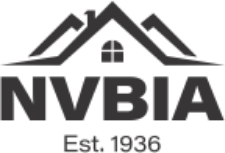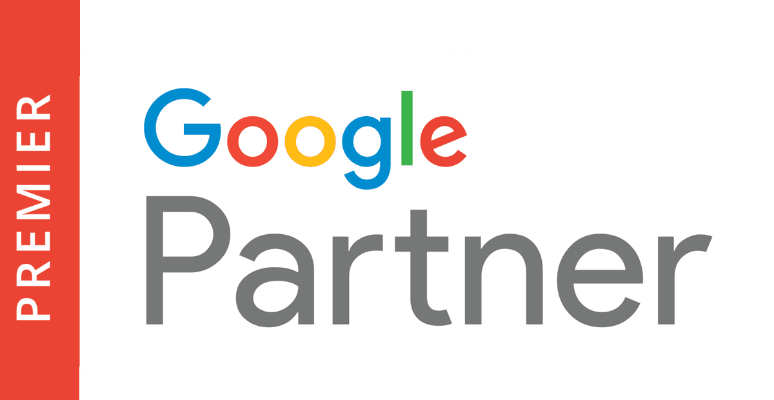8 Ways to Improve Your E-A-T (And Positively Affect Your Google Ranking)
E-A-T.
In a figurative sense, it’s what’s for dinner.
E-A-T.
Expertise, authoritativeness, and trustworthiness.
These are three important factors in Google’s website ranking, but not directly.
E-A-T is a three-course meal of how to focus your content to make the most of Google’s ever-evolving algorithm. Not by trickery or attempting to game the system, mind you, but by delivering the highest quality content possible.
Let’s examine how you can boost your E-A-T-iness, and why it should just be common practice for every bit of content you create anyways.
Why does Google like E-A-T?
Let’s not beat around the bush: Google, like every company, exists to make money. Google made a hint over 80% of their $182.5 billion dollars in 2020 on ads. In order to keep that revenue coming in, Google needs to have a growing sea of consumers who use their search. And the only way consumers will use Google search over their competitors is with accuracy of its algorithm and consequent results.
To ensure this accuracy, Google employs Search Quality Evaluators to routinely evaluate the algorithm by manually reviewing search results. As informed by Google’s Search Quality Evaluator Guidelines, evaluators are looking for sites with high levels of E-A-T. Sites with lots of E-A-T are rated as high quality sites, and are the ones Google wants its algorithms returning on SERPs. E-A-T is so important to this process that it’s mentioned about 129 times in the Guidelines.
Two things need to be very emphatically repeated. First, E-A-T is important, but isn’t a direct ranking factor. And second, that though humans review searches, they do not actually contribute to ranking. Straight from Google, “[Google Search uses] algorithms, not humans, to determine the ranking of the content they show to users.” (Emphasis Google’s!)
Google’s algorithm works because of machine learning (ML). Jason Barnard (The Brand SERP Guy) refers to this ML as “the child we’re teaching.” And how do we teach the child? Same as we humans learn: repetition and association. We’re repeating best practices—including E-A-T—and associating our site with others who do likewise.
So, let’s embrace teaching Google’s algorithm how expert, authoritative, and trustworthy your content is. To that end, here are 8 Ways to Improve Your E-A-T (And Positively Affect Your Google Ranking):
1. Keep your brand consistent.
Your brand information is everywhere you are. Social media sites have sections to tell readers about your company. Local listings, association websites, and the like also feature info about your business. And let’s not forget your Google Business Profile (formerly Google My Business). Each of these places is an entry point to your company and should provide uniform and up-to-date information. Google’s algorithm will then be able to associate all your various business listings and better build an idea of where and how your company operates. Remember: Repetition teaches the machine.
2. Analyze the highest-ranking sites.
Look at the sites that rank highest for where you want your company to be. Look at their pages, the information they provide, and how they provide that information. And most importantly, look at what they are doing to add value to their consumers. For example, if a high-ranking site adds average read time, date updated, and a separate section for sources on their blog posts, you can pretty safely assume that Google’s algorithm thought these bits gave the page more E-A-T. If you add these features to your own blog, the algorithm will add some E-A-T-iness to your site. As SEO-phenom Lily Ray says, “If you think about the way Google literally works, it’s that when it notices that all the most authoritative sites have [certain] page elements, [each of those page elements] becomes a ranking factor. It becomes an expectation of the page.”
3. Professionally proofread your content.
Creating thought-provoking content means nothing if the content is presented in a non-professional manner. That’s the nice way of saying, “full of bad grammar, punctuation, and spelling.” You don’t want those things. Every such error erodes your perceived expertise and authoritativeness. Experts are supposed to be perfect, or close to it. Though you don’t have to hire a professional proofreader, you do need to make proofreading as integral a part of your review process as if you did have a professional proofreader on payroll. One final thought: Don’t mistake professional as a synonym for formal. Conversational copywriting is the bee’s knees in the right place—it just needs to be free from preventable errors.
4. Do your research—wisely.
Everyone is going to do research for their content, but you need to make sure you’re doing the right research. To get the best E-A-T result, find as many primary sources as you can (i.e., the sites who did the actual research). In this duda video, Jason Barnard, Lily Ray, and Loren Baker talk about many aspects of E-A-T. One discussion explored their observations in how review sites that just aggregate information instead of adding any new insights are dropping in their SERP rankings (as are sites that just link to these sites). There are content/research sites that mimic this tactic (collect statistics without adding anything new). When you research, push beyond these lists and find the original sources. Primary sources are as expert, authoritative, and trusted as can be, and linking directly to them will duplicate some of their E-A-T-iness to your site. It’s E-A-T by association, and it’s just one way Google’s algorithm evaluates the value of what it crawls!
5. Don’t just quote experts on your blog.
Quoting E-A-T-rich sources is great for your blog, but don’t stop there. The more you spread intelligent, insightful, and important quotations around your entire website, the more Google’s algorithm will relate that quote and its speaker with your site. Link back to the speaker for even more E-A-T connectiveness. Once again, association is your E-A-T friend. And once you quote and link important thoughts on your site, you should let the author of those thoughts know. Why? Well, that’s a story for number 6!
6. Backlinks are still important, from the right place.
For SEO purposes, backlinks have always been important. By having sites link back to your site, SEO theory says your site should rank higher on SERPs. But just like when referencing statistics (number 4 in this list), the expertise, authoritativeness, and trustworthiness of the site linking to your site is of utmost importance to the SEO value of the link. One high-E-A-T backlink is worth more than all the low-E-A-T backlinks combined. Again, it’s the association that Google’s algorithm loves to use in its ranking. This is why we recommended in number 5 to let the quoted authors know of your inclusion of their words and links to their site. If they are E-A-T savvy, they’ll know by linking to your carefully crafted E-A-T-rich site, they’ll be improving their own reputation in the algorithm. And you’ll get a high-quality backlink. Win-win.
7. Build up and champion your writers.
Many companies post blogs—which is great when those blog posts demonstrate high levels of E-A-T—and give credit to “staff” or other generic names. While this practice does make everything seem to come from the company, it is a missed opportunity to boost your E-A-T. When we quoted SEJ’s Loren Baker above, we linked to his SEJ author page. This has information about him, links to important E-A-T-rich pages related to him, and links to all the articles he’s written for SEJ. This page helps build his personal brand, so to speak, which showcases his expertise, authoritativeness, and trustworthiness. Much the same way as linking to and from authors you quote, these associations to your own writers will add their E-A-T-iness to your site and vice versa, especially when you encourage your authors to build their own personal brand presence and digital footprint. Really get the most out your homegrown experts.
8. It really is quality vs. quantity.
Having a content creation calendar and schedule is fantastic. But only, and we mean ONLY, if the content being produced is quality. And by quality, we mean content full of so much expertise, authoritativeness, and trustworthiness that the Google algorithm will do a virtual backflip, consider your site to be high value, and rank it up on SERPs. Producing scores of mediocre or poor content, even if on a reliable schedule, does not help your site’s SEO dreams. Google will rank your content as not very E-A-T-y, and it will score lower on SERPs. As the header for this section says, it really is about the quality of your content versus the quantity of your content. It’s worth the extra time to make every word count, make every sentence illuminate, and make every piece of content as expert, authoritative, and trustworthy as you possibly can. It’s also worth it to revisit your content regularly and update it as needed.
E-A-T should always permeate your content.
This little phrase should be your main takeaway from this blog post. Work every bit of content you write to maximize its expertise, authoritativeness, and trustworthiness. You want Google’s algorithm to view your site as a bastion of reliable and skillful knowledge. Mine through current, high-ranking sites to find common practices that Google’s algorithm likes. Adopt and adapt these practices, while creating stronger and smarter content, and not only will you help train the machine to know how great your site is, you’ll also be providing the very best experience, information, and value for your customers. That is the true magic of E-A-T: You’re helping Google’s algorithm recognize your power, while at the same time empowering your users. E-A-T FTW!









